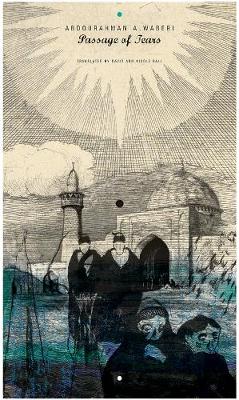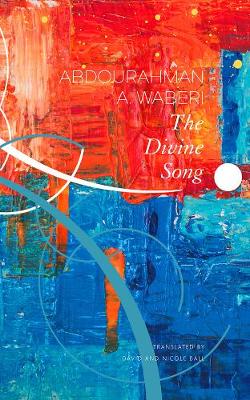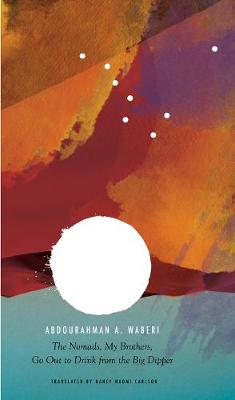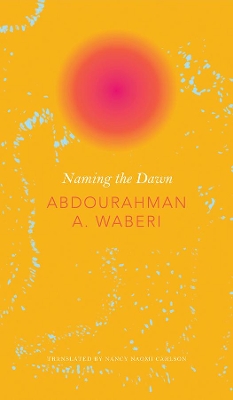Africa List
4 total works
Passage of Tears cleverly mixes many genres and forms of writing--spy novel, political thriller, diary (replete with childhood memories), travel notebook, legends, parables, incantations, and prayers. Djibril's reminiscences provide a sense of Djibouti's past and its people, while a satire of Muslim fundamentalism is unwittingly delivered through the other Djiboutian voice. Waberi's inventive parody is a lesson in tolerance, while his poetic observations reveal his love and concern for his homeland.
“Everything starts with a song and everything ends with another song,” says the narrator of The Divine Song. Paris is an old Sufi cat who keeps watch over his brilliant yet pathetic master, Sammy Kamau-Williams, the Enchanter. In Sammy, we recognize the African American singer-composer, poet, and novelist Gil Scott-Heron who is best known for his song “The Revolution Will Not Be Televised.”
The Divine Song takes us from the shores of Africa to Sammy’s ancestors’ arrival in the Americas in the hold of the slave ships. From there, Abdourahman A. Waberi takes the characters from Tennessee—under the tutelage of Lili Williams, Sammy’s beloved African-born grandmother—to New York and the concert halls of Paris and Berlin, wherever blues and jazz find an enchanted audience. African tales, religious practices, segregation, the civil rights movement, addiction, and jail—Sammy’s life comes to encompass the whole of the African American experience. At a time when social and racial divisions have yet again come into sharp relief, this lyrical novel by one of African literature’s rising stars is necessary reading for anyone who celebrates the resilience of art.
The Divine Song takes us from the shores of Africa to Sammy’s ancestors’ arrival in the Americas in the hold of the slave ships. From there, Abdourahman A. Waberi takes the characters from Tennessee—under the tutelage of Lili Williams, Sammy’s beloved African-born grandmother—to New York and the concert halls of Paris and Berlin, wherever blues and jazz find an enchanted audience. African tales, religious practices, segregation, the civil rights movement, addiction, and jail—Sammy’s life comes to encompass the whole of the African American experience. At a time when social and racial divisions have yet again come into sharp relief, this lyrical novel by one of African literature’s rising stars is necessary reading for anyone who celebrates the resilience of art.
The Nomads, My Brothers, Go Out to Drink from the Big Dipper
by Abdourahman A. Waberi
Published 19 May 2015
Few of us have had the opportunity to visit Djibouti, the small crook of a country strategically located in the Horn of Africa, which makes The Nomads, My Brothers, Go Out to Drink from the Big Dipper all the more seductive. In his first collection of poetry, the critically acclaimed writer Abdourahman A. Waberi writes passionately about his country's landscape, drawing for us pictures of "desert furrows of fire" and a "yellow chameleon sky." Waberi's poems take us to unexpected spaces-in exile, in the muezzin's call, and where morning dew is "sucked up by the eye of the sun-black often, pink from time to time." Translated by Nancy Naomi Carlson, Waberi's voice is intelligent, at times ironic, and always appealing. His poems strongly condemn the civil wars that have plagued East Africa and advocate tolerance and peace. In this compact volume, such ideas live side by side as a rosary for the treasures of Timbuktu, destroyed by Islamic extremists, and a poem dedicated to Edmond Jabes, the Jewish writer and poet born in Cairo.
The poems in this new volume by Abdourahman A. Waberi are introspective and inquisitive, reflecting a deep spiritual bond-with words, with the history of Islam and its great poets, with the landscapes those poets walked, among which Waberi grew up. The sage yearns here for the simplicity of each individual moment to somehow become eternal, for the histories and people that are part of him-his mother, his wife, his unborn child, the sacred texts that ground his being-to come together harmoniously within him, and to emerge through his words. Lyrical and personal, but with powerful historical and cultural resonances, these poems are the work of a master at the height of his powers.



